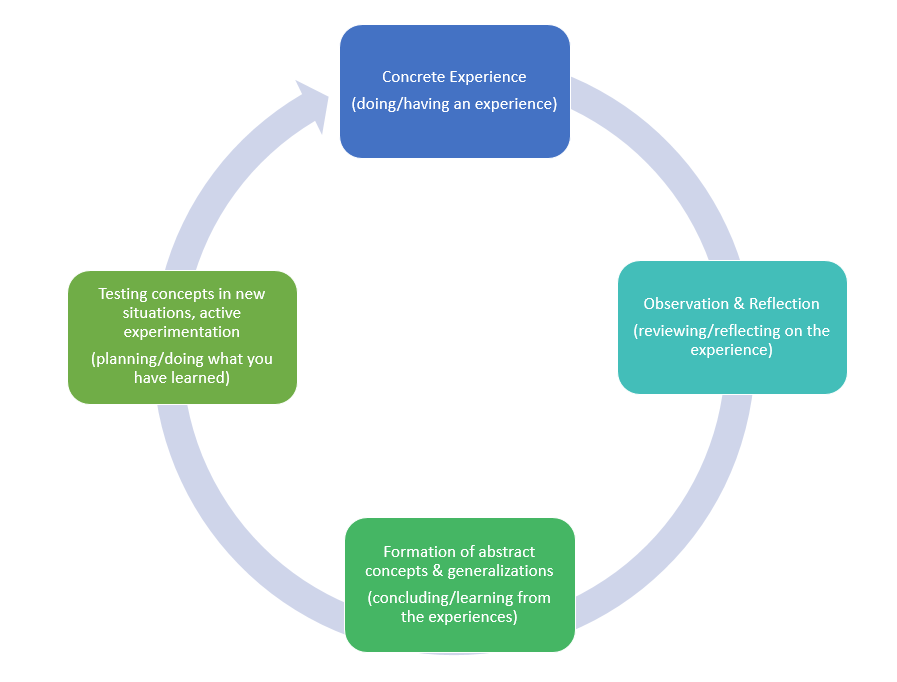Experiential Learning
The information in this section is intended to give you a brief but informational look into Experiential Learning.
Experiential learning is the process of learning through experience and is more specifically defined as “learning through reflection on doing.”
Students are developing skills, knowledge, and values from direct experiences.
Kolb’s experiential learning style theory is represented by a four-stage learning cycle where learners complete the cycle in order.

The learner completes the four stages by having a concrete learning experience. This is where the learner has a new experience, including a situational experience, the reinterpretation of a previous or a new experience.
After the experience, they reflect on the experience and give it meaning by paying attention to inconsistencies between the experience and their understanding.
Once they have reflected, the learner integrates the experience with other experiences to develop explanations and modifications and draw conclusions (abstract conceptualization) to learn from the experience.
The conclusions then guide the implementation of planning and decision-making, leading to new concrete experiences.
 Are you interested in learning more about Experimental Learning?
Are you interested in learning more about Experimental Learning?
If so, check out the links and readings below!
Article: Kolb’s Learning Styles and Experiential Learning Cycle
